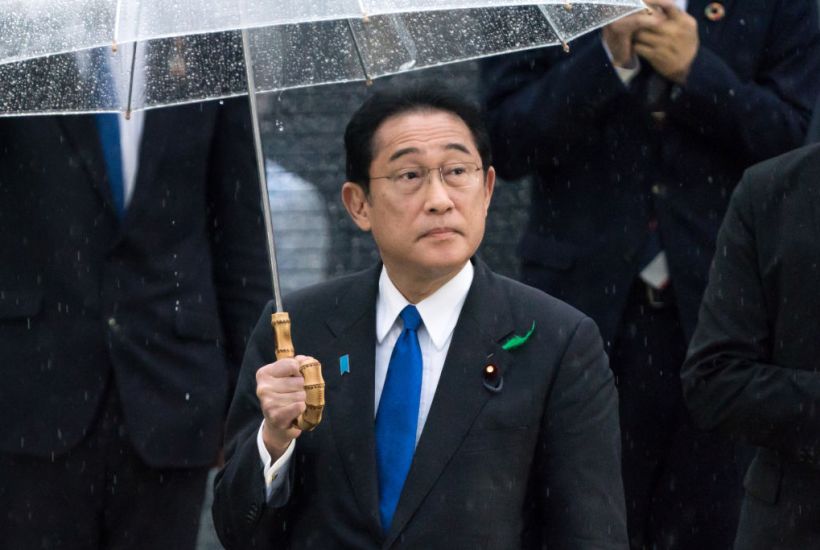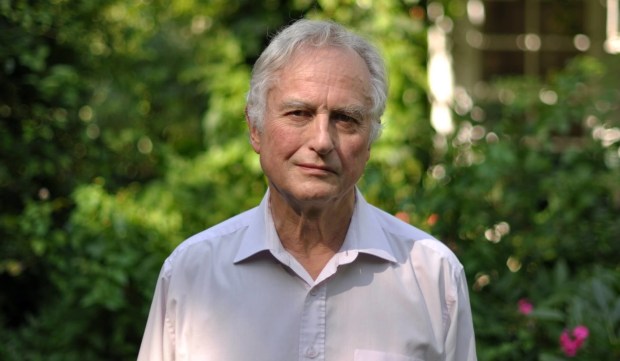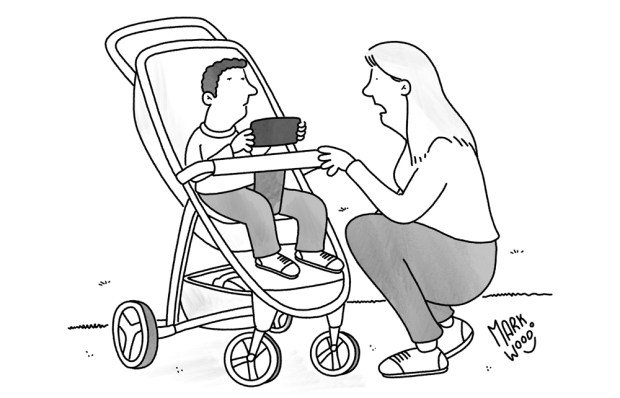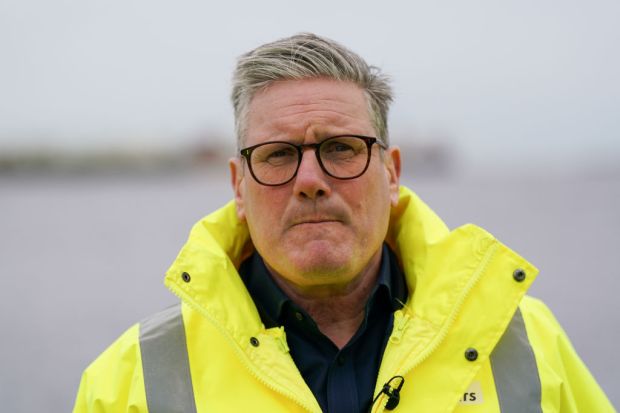Has Japanese Prime Minister Fumio Kishida just survived an assassination attempt? Kishida was evacuated from the site of a stump speech in the fishing port of Sakizaki in Wakayama western Japan after what appeared to be a pipe bomb was thrown in his direction. No one was injured but people fled in terror after the attack, which occurred at around 11:25 AM shortly before the PM was due to speak. A man was wrestled to the ground clearly holding a cylindrical metal object identical to the one thrown at Kishida before being arrested and taken away.
That’s as much as we know for now. It is not clear yet whether the ‘explosive’ was capable of killing anyone. From dramatic footage of the incident a loud bang can be heard, and a cloud of smoke seen and according to a witnesses there was a smell of burning. There isn’t much sign of damage, though. The suspect, who has apparently yet to respond to questioning and whose motive is so far unknown, is reportedly a 24 year-old male from Hyogo prefecture. He had a full-looking backpack with him. Its contents are unknown.
Given the similarities in circumstances, speculation will inevitably focus on any possible link between today’s incident and the assassination of former PM Shinzo Abe just nine months ago. Abe was shot with a home made gunwhile campaigning in Nara. His alleged killer Tetsuya Yamaguchi declared a grievance against the Abe clan for its association with the Unification Church, which he said had all but extorted money from his widowed mother thus ruining his family. A subsequent probe revealed that 179 of 379 lawmakers from Abe’s and Kishida’s party the LDP had links with the ‘church’.
Kishida was not one of them though, and the current PM, a mild mannered former banker, has a fairly clean image. His worst personal scandal so far was a bit of nepotism – he employed his inexperienced son Shotaro as his executive secretary. But that’s small potatoes by the standards of Japanese politics and hardly explains why anyone would want to lob explosives at him.
However, Kishida did cause outrage in some quarters with his decision to grant the slain Abe a state funeral, which was not only hugely expensive but was claimed by some to be unconstitutional. The move alienated many, drew Kishida into the orbit of one of Abe’s numerous legacy scandals, and intensified the general antipathy to Japan’s eternal party of power.
Of course, today’s attack may be entirely unrelated to Abe’s murder, but it is another reminder that despite the carefully cultivated image of stability, Japan can be a violent and dangerous place at times. As I wrote in the aftermath of the Abe attack the country has a long history of political violence which has included numerous assassination attempts on the lives of Prime Ministers, with four, including Abe’s, being successful.
There are also regular spasmodic acts of violence from disturbed loners, usually nihilistic men in their twenties, with no apparent motive other than to gain notoriety, or escape from an oppressive, hopeless existence. In 2008, 25-year old Tomohiro Kato went on stabbing spree in Akihabara Tokyo, killing four and injuring eight. He was executed last year. In 2016, 26-year old Satoshi Uematsu, in a marihuana induced frenzy according to some reports, killed 19 residents of a residential home for people with disabilities. In October 2021, 24-year old Kyota Hattori, dressed as the Joker on Halloween night, carried out a knife and arson attack on a subway train in an apparent attempt to be given the death penalty and end his miserable life.
The official response to today’s incident from Kishida, Chief Cabinet Secretary Hirokazu Matsuno and LDP General Secretary Toshemitsu Motegi was to condemn the assault on democracy and declare that campaigning for the upcoming elections would carry on as normal. But it will surely be a new normal. Kishida will be embarrassed that the extra security measures brought in after Abe’s killing could not prevent today’s attack. Particularly galling is the fact that Kimura was initially apprehended by local fishermen, not the security detail.
Kishida will also be seriously worried about what all this presages for the G7 meeting in Hiroshima in May. He would surely have been hoping to welcome the other leaders to his hometown without having to impose too heavy handed a security presence, thus emphasising one of Japan’s greatest claims – the relative security and respect for the law. He might have been hoping that a few informal tours could have been arranged of his old haunts, with himself as guide. But that seems vanishingly unlikely now.
Got something to add? Join the discussion and comment below.
Get 10 issues for just $10
Subscribe to The Spectator Australia today for the next 10 magazine issues, plus full online access, for just $10.




















Comments
Don't miss out
Join the conversation with other Spectator Australia readers. Subscribe to leave a comment.
SUBSCRIBEAlready a subscriber? Log in